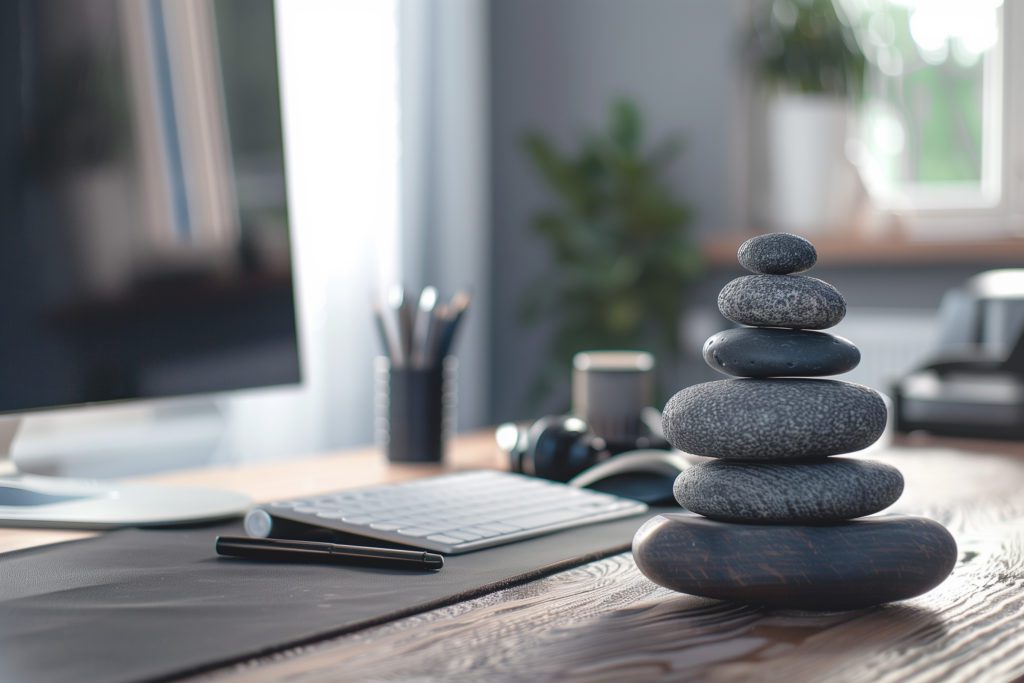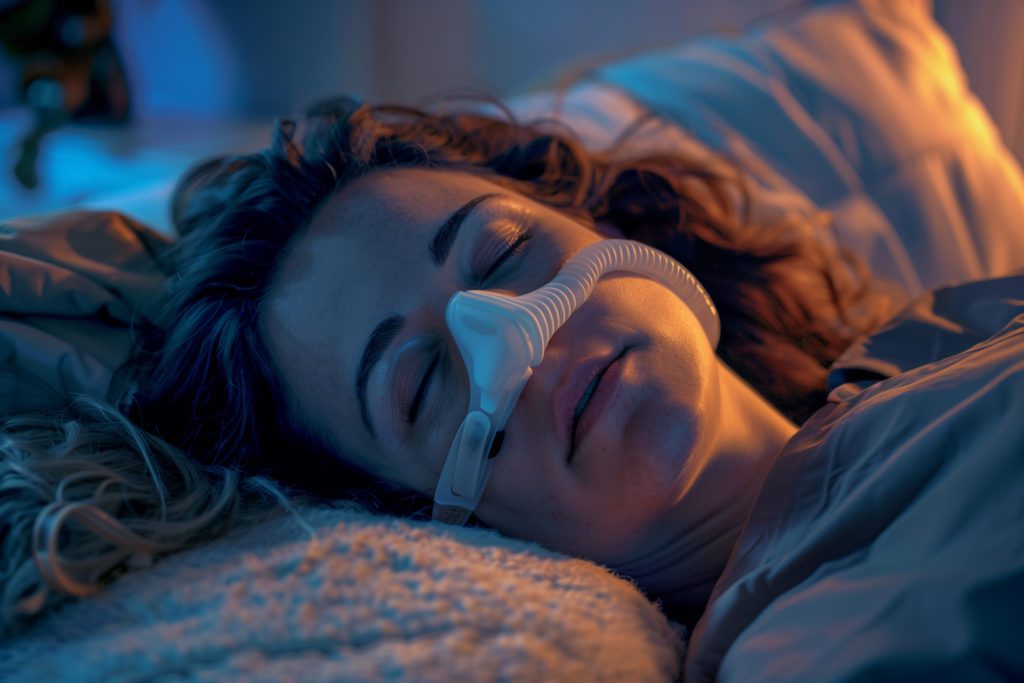
Does Sleep Affect Your Mood? Maybe More Than You Think
Not getting enough sleep can cause negative moods to flare up. Explore why this is and what you can do to improve your mood through good sleep habits.

Have you ever woken up in the morning and known that it was going to be a bad day? Maybe it’s the way you glare at the light streaming in through your window or because you want to scream when you drop something as you get ready; whatever the indicator, it soon becomes clear that your mood is further souring with each thing that goes wrong, and nothing seems to make it better.
When you wake up in a bad mood, it’s not just a product of chance—it’s likely because you didn’t get enough good, quality sleep the night before. Sleep is crucial when it comes to your mood, and if you’re not careful, your bad mood may continue day after day until you finally get enough sleep.
Sleep Deprivation and Poor Mood
It’s a pretty well-understood concept—if you sleep poorly at night or don’t get enough sleep, you’re likely to feel irritable and grumpy the following day, and you may be more likely to feel overwhelmed or stressed by what goes on in your life.
There’s a reason why the saying “woke up on the wrong side of the bed” is so common. Our sleep significantly influences the mood we wake up in, and sometimes, the only way to reset our mood is to go back to bed, not to wake up on the other side, but to address any sleep debt making our moods sour.
Studies have shown that even a slight sleep deprivation can significantly affect your mood—those who received only 4.5 hours of sleep each night for a week felt more angry, stressed, sad, and mentally exhausted. The good news, though, is that these poor moods are easily remedied; you only need to get enough sleep each night.
Interestingly, it may not be how much sleep you lose in general that affects your mood but the specific losses of certain sleep stages. For example, one meta-analysis spanning 50 years of research found that the participants who lost REM sleep reacted more negatively to experiences.
Furthermore, the emotional influence of sleep loss may become stronger as we age—young adults may see fewer mood fluctuations after sleep loss than their parents do.
How Does Sleep Affect Mood?
As for how sleep impacts our mood, there are multiple connections, such as:
- Increases negative emotions: Sleep loss has been shown to increase negative emotions, such as restlessness, anxiety, and sadness.
- Decreases positive emotions: Sleep loss also decreases positive emotions, such as enthusiasm, happiness, and joy.
- Influences your eating habits: Studies show that sleep loss makes you less capable of turning down junk food, which can cause blood sugar fluctuations, leading to anxiety and fatigue.
- Increases stress. Sleep loss places your body in a state of stress, which releases cortisol. Over time, this can cause high blood pressure and increase the risk of depression.
- Cuts down the brain’s rehearsal time: Evidence suggests that our brain emotionally rehearses scenarios from the past and future while asleep. However, when you don’t get enough sleep, your brain doesn’t have this time to rehearse, which can cause unstable moods that you cannot respond to appropriately during the day.
- Less coordinated: When you’re continually dropping things or unable to concentrate, you can become frustrated and angry.
The Opposite Is True, As Well
It’s not just sleep that affects mood—the opposite can be true, as well. For example, if you experience anxiety, it increases arousal and agitation, which can make it hard to fall asleep, eating away at your sleep times. Stress can affect the body in a similar way.
Unfortunately, these poor moods can affect sleep, and then the sleep loss can further aggravate your bad mood, perpetuating the cycle.
How To Get More Sleep
Once you realize that your poor mood may be due to a lack of sufficient sleep, prioritizing your body’s sleep needs is the crucial next step. In the case of bad moods unrelated to mental health disorders, more sleep may be all you need to shake away the funk.
With getting enough sleep being your greatest priority, follow these tips:
Avoid Caffeine and Alcohol Before Bed
One’s a stimulant, and the other’s a depressant, but both can affect your sleep. Caffeine can keep you from falling asleep, and alcohol may increase how often you wake up and cause poorer quality sleep.
To preserve your sleep, don’t overindulge on these two, and avoid them within a few hours of bedtime.
Optimize Your Bedroom
Have you ever tried to sleep in a bright, noisy, or hot room? If you have, you likely know that in these environments, sleep doesn’t come easily, if at all.
That’s because our bodies have a preferred sleep environment, one that’s dark, cool, and quiet. To help you fall and stay asleep, try your best to achieve this. Use fans to cool your room and block out noise, use black-out curtains, drop the thermostat, or try an eye mask to block out light.
The final key to optimizing your sleep environment? Choose a comfortable mattress with pillows and soft sheets that you can’t wait to curl into at night.
Relax Before Bed
Your pre-bedtime habits are crucial for setting your mind up for sleep, so be sure to fill that time with relaxing activities, such as reading a book, journaling, taking a bath, or meditating.
Not only will these activities get you ready for bed, but they can calm your mind, leaving you in a better mood.
Sleep for Happiness
Our mood is a significant decider of our day, personality, and quality of life. When your mood is poor, your internal dialogue will reflect it, tinging everything that happens to you in a negative light and further souring your mood. This can then hinder your relationships, both personal and professional.
Furthermore, when you’re in a bad mood, you may be more likely to give into bad habits and vices that can damage your health, such as consuming excess junk food, smoking, or drinking alcohol.
To preserve your health and happiness, getting enough sleep each night is crucial. Avoid caffeine and alcohol, optimize your sleep environment, and relax before bed to help you sleep better and wake up on the right side of the bed.
FAQ
Can taking melatonin affect my mood?
Yes! Melatonin helps regulate sleep, but it also influences mood. If your melatonin levels are too low, you might feel more anxious or down. Some people even report mood swings if they take too much melatonin, so it’s best to use it carefully.
Why do I feel so emotional after a bad night’s sleep?
When you don’t get enough sleep, your brain has a harder time regulating emotions. This can make small problems feel overwhelming and increase feelings of stress, irritability, or sadness.
Will taking a nap help if I’m in a bad mood?
Definitely! A short nap (10–20 minutes) can help reset your mood and boost energy levels. Just avoid napping too late in the day, or it might mess with your nighttime sleep.
Why do I crave junk food when I’m sleep-deprived?
Poor sleep affects the hormones that control hunger, making you crave sugary and high-fat foods. These quick-energy snacks might feel good in the moment, but they can lead to more mood swings later on.
What sleep disorders can negatively impact mood?
Conditions like insomnia, sleep apnea, and restless leg syndrome can contribute to chronic sleep deprivation, leading to irritability, mood swings, and even an increased risk of mood disorders like depression.

Written by
Jessica G
Medical writer freelancer who has written hundreds of articles on varying topics. Masters of Engineering degree in Biomedical Engineering.
Download Pillow
Get help
Press & News
Legal
Connect
X (Twitter)
Company
Copyright © Neybox Digital Ltd.



